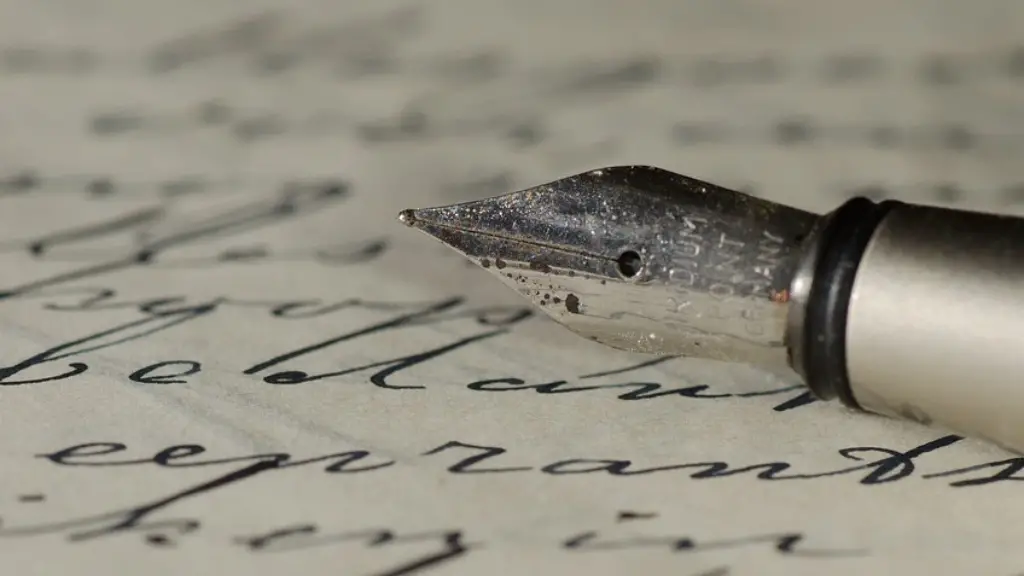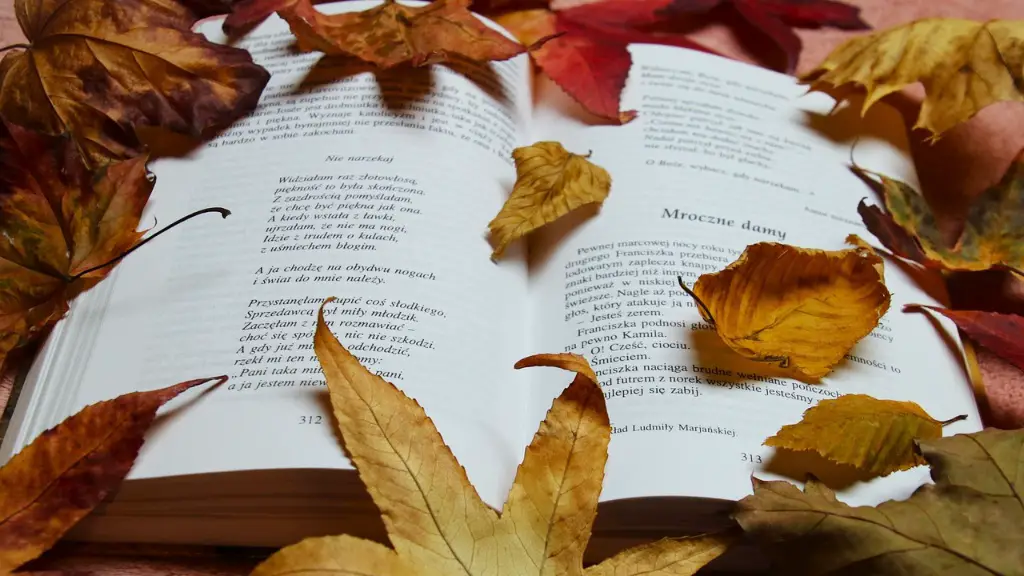Background Information
Poetry is a literary form of expression, used to communicate intense emotions, complex thoughts, and abstract ideas. It takes skill and creativity to craft a great poem. While it is easy to get discouraged when starting out, with some tips and tricks you can start writing better poetry in no time.
The Basics
The most important element of writing a poem is to first create a powerful message. Choose an idea or topic to write about and start brainstorming ideas and language related to that topic. Poems can be written in any style, but it helps to establish a structure before writing. A popular structure is to begin with a introduction, move on to a body of the poem that develops the message, and conclude with a resolution or conclusion.
Form Matters
Not all poems have to follow a specific form, however it helps to use literary devices such as rhyme and meter to emphasize certain aspects of the poem and make it more interesting. It is also important to consider rhythm and sound when writing a poem. Different word structures, syllables, and alliteration can create a more powerful impact. Using attention-grabbing language and images can help the poem stand out.
Using Emotion
A great poem can evoke powerful emotions, and this is done through the use of vivid language that imagines and creates a distinct mood. It is important to select tones and words that can evoke a variety of emotions making a strong impact in the reader.
Unexpected Perspectives
The best poems can often be those which twist the reader’s expectations and provide unique perspectives on their topics. It is important to carefully consider which angle the poem will take and explore various possibilities. Surprise the reader with unexpected twists or by shifting in and out of different perspectives.
Understanding Language
Poetry is all about language, hence it is necessary to use language carefully. Make sure the language used is interesting and evocative. Consider the effects of words on the reader and use metaphors, similes and personification to create powerful images. Taking inspiration from other poets can also provide helpful suggestions regarding language.
Edit and Revise
Once a poem is written, it is important to take time to revise and polish. Keep reading the poem out loud as it can help identify awkward or unclear sections that could be improved. Consider deleting sections or refining language as necessary.
Practice
Above all, the best way to become a better poet is to practice. Try writing several poems in different genres and topics to develop a deeper understanding of poetry. Seek feedback and advice from other poetry experts or writing groups and attend poetry events to stay inspired and motivated.
Different Types of Poetry
When writing poetry, understanding the different types of poetry styles can help in creating more powerful poems. Styles such as haikus, ballads, sonnets, and free verse are popular choices. Limericks and nursery rhymes can be a fun option for lighthearted and humorous poems. Understanding each poem style’s usage and features will ensure your poem is perfect for the genre.
Exploring Imagery
Imagery is an essential element of poetry. Pictures, sound, and tastes can be embedded within a poem to describe the poem’s message. Imagery also helps create a strong visual and auditory experience for the reader and is key to holding their interest. Various similes and metaphors could be used to express ideas and emotions in captivating ways.
Adding Variety in the Writing
When writing poetry, challenge yourself to use new words and descriptive phrases in creative ways. Consider using anaphora, consonance, and assonance to add texture and depth to the poem. Experiment with different approaches such as personification and allegories to add variety and bring the poem to life.
Concentrating on Tone
The overall tone of a poem can be changed depending on the language used and the structure of the poem. Specific language and syntax can influence and create a variety of tones such as humorous, reflective, serious, and philosophical. Considering the poem’s purpose when writing is important to create the desired tone for the poem.
Making Connections
Poetry does not need to be disconnected from reality. Incorporating your own experiences or other stories in the poem can create a stronger impact and evoke empathy. Consider crafting a narrative with a beginning, a middle and an end. Writing narratives within poems can also allow for incorporating multiple themes in single works.
Sharing your Work
Once your poem is complete, you can share it with the world. Consider submitting it to poetry magazines and contests, or publishing it online through blogs, poetry websites, and social media. Take the time to market your poems and build an audience to increase its reach. Sharing your work will not only help spread your message, but also provide valuable feedback on your writing.



